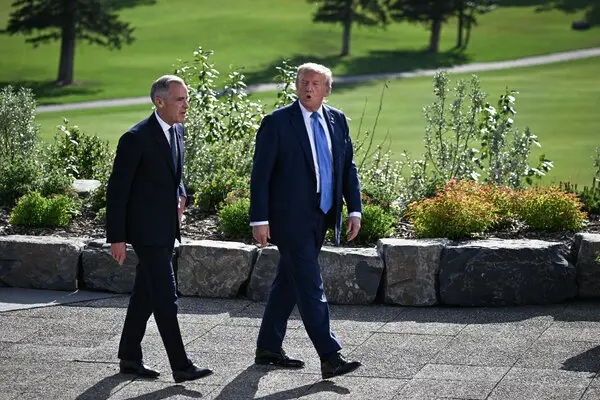🎧 Listen to This Article
Canada has announced the withdrawal of its Digital Services Tax (DST) just hours before the first scheduled payments from major US tech companies were due, in a move designed to revive stalled trade negotiations with the United States.
The decision comes after US President Donald Trump on Friday condemned the tax as a “blatant attack” on American firms and halted progress on a new trade agreement. Canada’s Finance Minister François-Philippe Champagne confirmed legislation will be introduced to formally rescind the tax and halt collection efforts retroactive to January 2022.
“Canada’s preference has always been a multilateral agreement,” said Champagne, reiterating Canada’s alignment with OECD-led efforts on digital taxation.
What Was the Tax?
The DST, introduced in 2020, imposed a 3% levy on digital revenues above C$20 million earned in Canada by large multinational tech firms. Companies like Amazon, Meta, Google, and Apple were expected to be hit with over C$2 billion in tax liabilities in the first year alone. The 2023 federal budget projected C$5.9 billion in revenue from the DST over five years.
US Response
Trump, now in his second term and closely aligned with Big Tech executives, labeled Canada’s policy “egregious” and warned that the US could leverage its economic dominance over Canada. The White House’s Kevin Hassett confirmed Monday that trade talks will “absolutely” resume following the tax’s withdrawal.
Commerce Secretary Howard Lutnick praised the move, calling it a “deal breaker averted.”
“This is a constructive decision,” said Rick Tachuk, President of the American Chamber of Commerce, applauding Canada’s reversal as a positive step toward stabilizing North American trade.
Why It Matters
- Exports at Stake: 75% of Canadian exports—worth over $400 billion annually—go to the US.
- Trade Imbalance: Canada absorbs just 17% of US production.
- Political Fallout: The tax had become a persistent irritant across multiple US administrations.
Political Pressure in Ottawa
Critics in Canada argue the government mishandled the DST from the start. Michael Geist, a University of Ottawa law professor, pointed to poor timing, retroactivity, and failure to heed bipartisan warnings from US lawmakers.
The Liberal government, now led by former Bank of Canada governor Mark Carney, had until recently vowed to enforce the tax despite tensions with Washington.
Business groups within Canada also voiced concern that the tax would raise costs for consumers, eroding domestic support.
For further details, clarification, contributions, or any concerns regarding this article, please get in touch with us at editorial@tax.news. We value your feedback and are committed to providing accurate and timely information. Please note that our privacy policy will handle all inquiries.



